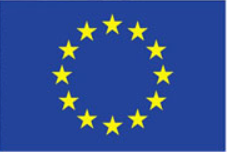
The MiMIND project aims to promote good mental health and prevent mental health problems among migrants, refugees, and internally displaced people (particularly from Ukraine). It does so by providing methodological support to professionals involved in integration and essential services (e.g., healthcare, social care, education, employment). The project focuses on addressing both pre-migration and post-migration stressors, which affect the mental health of these vulnerable groups.
MiMIND’s main objectives are:
- Supporting mental health assessment during the integration process.
- Promoting good mental health by providing psychosocial support tailored to different groups (e.g., children, women, families).
- Enhancing primary care professionals’ abilities in Ukraine to assess and manage mental health problems among displaced persons.
- Guiding essential service professionals (e.g., in health, social care, education) in detecting and promoting mental health.
- Providing policy-makers with recommendations on integrating mental health promotion into sectoral policies.
The project will develop various methodological tools, including Codes of Good Practices (COPs) for mental health assessment and promotion, as well as guidelines and recommendations for professionals and policymakers. Pilot projects will test these tools in Hungary, Romania, and Ukraine.
GAMIAN-Europe’s roles involve in:
- Channelling the Perspectives of Mental Health Patients: GAMIAN-Europe will ensure patients’ perspectives are central to the project’s development. By contributing insights from its network of member organisations, GAMIAN-Europe will ensure the project’s Codes of Good Practice (COPs) for mental health assessment and promotion reflect the real-world needs and challenges faced by migrants, refugees, and displaced persons dealing with mental health issues.
- Supporting the Development of Best Practices: As a network of patient organisations, GAMIAN-Europe will help identify and incorporate best practices for mental health promotion and care that its members have implemented across Europe. This will feed into the creation of practical tools and methods for use by professionals in integration services, ensuring they are grounded in the experiences of mental health patients.
- Communication and Dissemination of Project Results: GAMIAN-Europe plays a crucial role in the communication and dissemination activities of the MiMIND project. Through its extensive network, GAMIAN-Europe will share the project’s findings, including the COPs, guidelines, and recommendations, with a broad range of stakeholders across Europe. This will involve:
- Sharing updates via its website, newsletters, and social media platforms to raise awareness of the project’s activities and outcomes.
- Organizing events (such as webinars or workshops) that bring together professionals, policy-makers, and civil society to discuss the project’s results and best practices.
- Participating in conferences to present MiMIND’s work, ensuring it reaches a broad audience of mental health professionals, NGOs, and governmental bodies.
- Engaging Stakeholders for Adoption: GAMIAN-Europe will work to build relationships with key stakeholders, including national and European policy-makers, healthcare professionals, and NGOs, encouraging them to adopt and implement the MiMIND project’s guidelines and recommendations. Its outreach will help ensure that mental health promotion becomes an integral part of policies and practices concerning the integration of migrants and refugees.
- Contributing to Policy Recommendations: GAMIAN-Europe will contribute to the development of policy recommendations based on the project’s findings. This will involve advocating for a “Mental Health in All Policies” approach, helping to ensure that mental health is integrated into the sectors of healthcare, social services, education, and employment. GAMIAN-Europe’s patient-centered advocacy will ensure that the recommendations address the specific needs of migrants and refugees, particularly those suffering from mental health issues.
Find more about the project here.
This project has received funding from the EU4Health research and innovation program under grant agreement No

Duration
3 years | 2024-2027
Partners
5
Countries
3
Website: